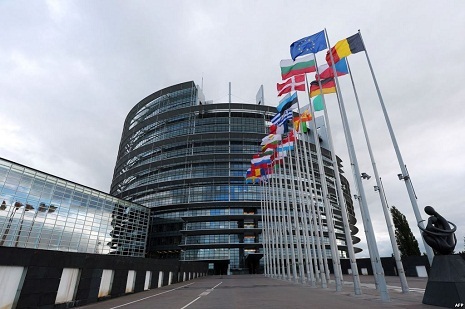The negotiating parties are to resume a truncated round six of talks in Brussels on Thursday without the participation of both chief negotiators. David Davis, the Brexit secretary, is only expected to meet Michel Barnier, the chief EU negotiator, on Friday at the end of the one of the briefest negotiating rounds.
The financial settlement of Britain leaving, which is worth potentially €60bn (£53bn) to the EU, remains the largest hurdle to moving talks on to a future relationship. However, in its letter, the European parliament warns neither side to underestimate the significant problems that remain on citizens’ rights, even beyond the still unresolved question of the role of the European court of justice in governing any future agreement on the subject. The MEPs will have a right of veto on any future agreement.
It is understood the EU’s negotiators additionally fear the UK is sliding back on previous promises. In September the British government appeared to concede that European law would take “direct effect” when it came to protecting the rights of EU nationals living in the UK, meaning they can appeal to UK courts citing European law enshrined in the withdrawal treaty.
Officials in Brussels now sense mixed signals from London. The British are also feared to be back-pedalling on family reunification and export of benefits.
The parliament’s Brexit steering group, chaired by the former Belgian prime minister Guy Verhofstadt, also highlighted those issues as of concern, although he suggested that both sides needed to move their positions for the parliament to approve the outcome.
In particular, the cross-party group of MEPs claimed the proposed application procedure for EU nationals in the UK published this week did not meet the parliament’s demands that claims to remain should be processed without conditions, including a criminal records check, or a cost to applicants. The British proposal suggests there would be a cost to applicants of “no more” than the price of a passport and that there would be a check of crime databases before an application is approved.
The MEPs also say there should be no need for individual family members living in Britain to make separate applications, in contradiction to the British government’s position.
The parliament also dismisses the UK suggestion EU nationals would have to meet the same income threshold set for British nationals who want to bring a spouse from a non-EU state to Britain, a continuing sticking point in the talks.
Verhofstadt told the Guardian that the claim from some that the lives of EU nationals would be unchanged post-Brexit was seemingly “a fabrication”, while a UK government source said in response to the letter: “We respect the parliament but we are negotiating with the commission.”
The Brexit steering committee also warned Barnier that British nationals living in EU27 countries should retain the right to the free movement they have today.
The UK government has called on the EU publicly and privately to guarantee onward movement rights, which would allow British nationals living in one EU country to move to any other member state after Brexit.
Advertisement
Davis, has suggested that in return the 3.2 million EU nationals living in the UK could have an indefinite right of return, should they ever move to another country. The EU has been accused by the British government sources of refusing to engage on the matter.
If the UK fails to pass the EU’s sufficient progress test in December, the EU could freeze its internal work on future ties, an olive branch offered to the UK at October’s EU summit. EU ambassadors were to officially launch their internal planning process on Wednesday, and agree a document on how to devise a Brexit transition and future ties, as the Guardian reported on Tuesday.
A British government spokesman said: “The UK has made a fair and serious offer on citizens’ rights and we will continue working with the EU to finalise an agreement. At the latest round of negotiations, we made real progress on issues which will have a significant impact on people’s lives.
“Safeguarding the rights of EU citizens living in the UK, and UK nationals in the EU, is our first priority in the negotiations. We want to provide as much certainty as soon as possible to the many EU citizens who have made their lives in the UK and who make a huge contribution to our country.”
More about: #Brexit
















































